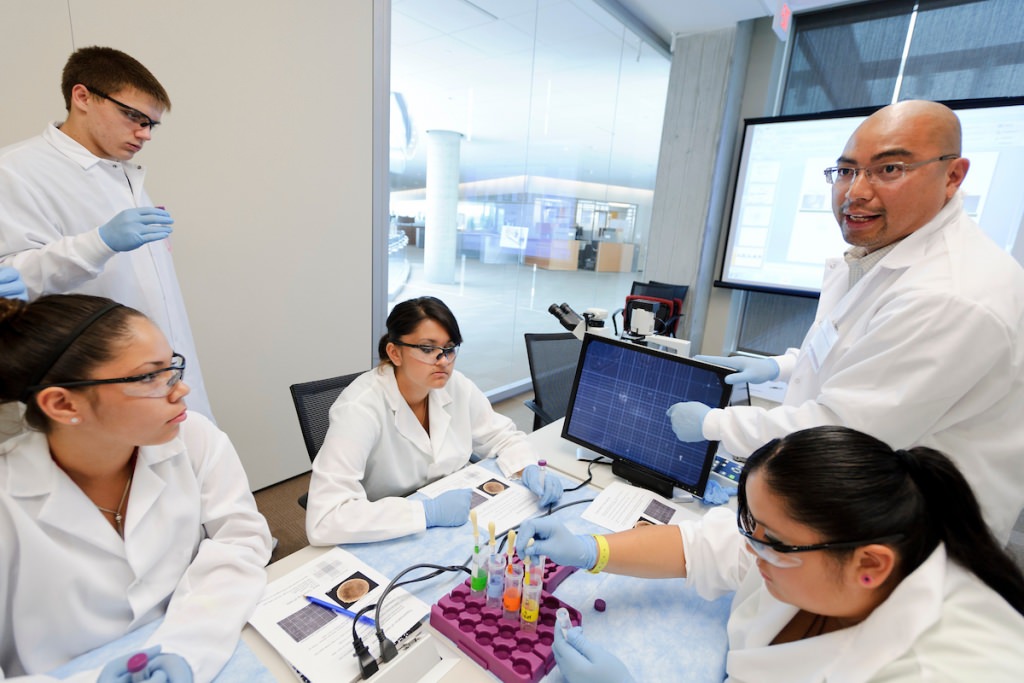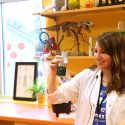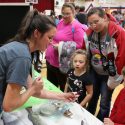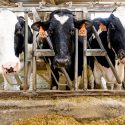2017 rural summer science camp spans Wisconsin landscape

Instructor Tom Turbon describes a neural stem cell differentiation procedure during a Summer Science Camp held at the Embedded Teaching Lab in the Wisconsin Institutes for Discovery in 2012. Photo: Jeff Miller
For two weeks in July, more than 50 Wisconsin rural high school students and 10 teachers will converge on Madison to get a taste of stem cell science, rubbing elbows in labs with some of the world’s leading researchers in regenerative medicine.
Now in its 11th year, the Morgridge Institute for Research has sponsored the weeklong camps to expose students from underserved areas to a field that is transforming human health. The goal is to spur further career interest in science, technology, engineering and math (STEM) fields.
Top scientists, as well as graduate and undergraduate students, from the University of Wisconsin–Madison and Morgridge volunteer teaching and leading experiments as part of the program. Students conduct experiments and hear talks on gene transfer, cardiac cell differentiation, drug discovery, tissue engineering and other topics. The week culminates with poster sessions given to employees in the Discovery Building, 330 North Orchard Street.
There is no other program like it in the country. Since 2007, more than 400 students from more than 70 state high schools, some with enrollments below 100 students, have participated. This year’s camps will be held July 10-13 and July 24-27 with the following high schools:
Kickapoo Area School District in Viola; the North Crawford School District in Soldiers Grove; Iola-Scandinavia School District in Iola; Black Hawk School District in South Wayne; Chetek-Weyerhauser School District in Chetek; Lancaster High School; Phillips High School; Bruce High School; Coleman High School; and Hillsboro High School.
Morgridge runs the camp in partnership with the Wisconsin Rural Schools Alliance (WRSA). It is supported by an endowment established by the family of Kathleen Smith, a former trustee of both the Morgridge Institute and the Wisconsin Alumni Research Foundation. WRSA and the Melita Grunow outreach endowment at Morgridge also support the camp.
“It has probably been the most exciting experience of my teaching career,” says Hillsboro High School science teacher Debra Freitag, a return camp participant. “Back in Hillsboro, (students) don’t have this kind of equipment or the chance to get exposed to research scientists.”



